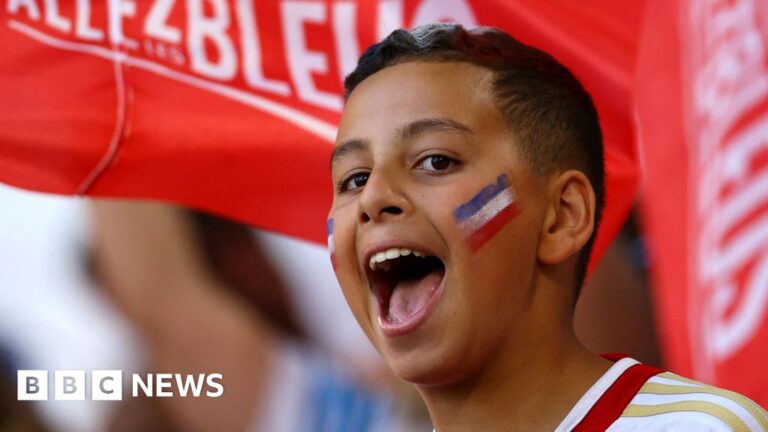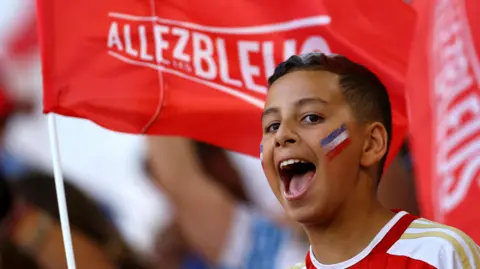 Reuters
ReutersOlympic fans are trying out a new AI-powered talent-discovery system that aims to unearth future gold medalists, as developers aim to bring advanced sports science to remote locations around the world with a portable version of the technology.
As the alarm goes off, Takuto frantically runs to swipe the infrared sensors in front of him, when suddenly, several of the sensors start flashing blue.
Nearby, his younger brother Tomo sprints around a short running track, his movements tracked by an array of cameras.
The brother and sister, aged 7 and 4, from Yokohama, Japan, are taking part in a series of AI-powered tests specially set up near Paris’ Olympic Stadium.
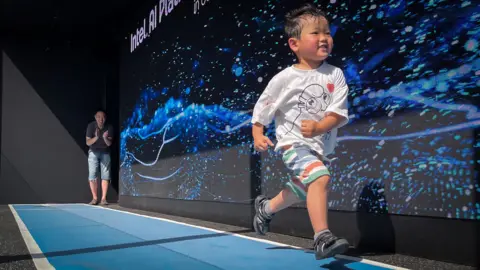
The purpose of this system is to unearth potential future gold medalists.
Data will be collected from five tests that include activities such as running, jumping and measuring grip strength.
This information is analyzed to evaluate a person’s power, explosiveness, endurance, reaction time, strength and agility.
The results will be compared with data from professional and Olympic athletes.
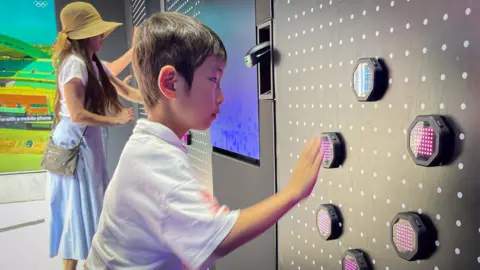
“We’re using computer vision and historical data to allow everyday people to compare themselves to top athletes and discover which sports they are best suited for physically,” said Sarah Vickers, head of Intel’s Olympic and Paralympic programs.
After completing the test, each participant is told which sport from a list of 10 they are best suited for.
Intel says that once the process is complete, all data collected from participants will be deleted.
Apart from technology, it’s also something the younger siblings enjoy doing.
“It was fun,” Takuto said. “The best part was sprinting.”
Portable AI
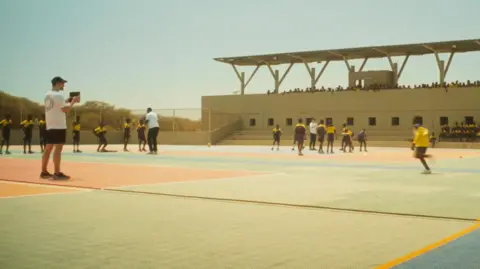 Intel
IntelThe AI system that will be revealed to fans at Paris 2024 will have a much smaller, more portable system that can run on most devices with a basic camera and a bit of computing power.
“Having a phone, tablet or computer gives you the opportunity to go places you couldn’t go before,” Sarah says.
This AI technology does not require any physical sensors and can assess a person’s performance simply by analysing video from a camera.
The International Olympic Committee recently took the system to Senegal, where it traveled to five villages to assess the athletic performance of more than 1,000 children.
After several rounds of more sophisticated testing, working with Senegal’s Olympic Committee, the group identified 48 children with “great potential” and one with “exceptional potential.”
If they wish, they are also offered the opportunity to appear on sports TV shows to test how far they can stretch their athletic abilities.
It is hoped that the system will become more widespread and be used to provide opportunities to people in areas that cannot be reached by larger assessment systems.
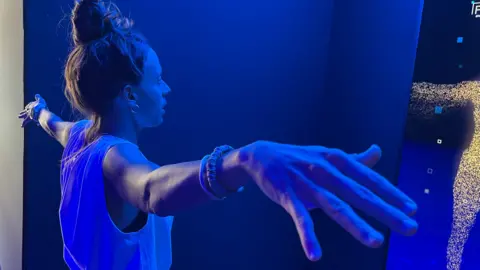
Prof John Brewer, a visiting lecturer at Suffolk University who has worked with the Football Association on talent identification, says spotting potential at a young age is the “holy grail” of sport.
But they caution that in technical or endurance sports such as soccer or basketball, a basic system that can only measure a few traits has its limitations.
“If you want to win the marathon or the 10K, you need aerobic capacity, oxygen-carrying capacity, and you can never see that on film,” he says.
Professor Brewer believes the system could be useful for early assessment of promising athletes.
“If they’re demonstrating skill and agility that indicates they can be talented in a particular sport, that should be encouraged,” he says. “And if that’s portable and can be brought to areas that don’t necessarily have access to high-tech assessment methods, that can only be a good thing.”
“But it’s just one part of a much bigger talent-discovery system.”
End Result
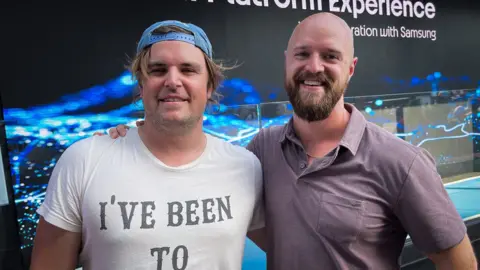
Returning to the Olympic Stadium, the young Takuto had results and he was recognized as a promising sprinter for the future.
He’s happy, but says he now prefers soccer and tennis.
The two more experienced athletes are Hank and Brock, both of whom competed at the intercollegiate level at universities in the United States, a standard that offers world-class facilities and has produced many Olympians.
“We’re both former athletes and very competitive, so we thought it would be fun,” Hank says.
“When we were swimming 10 or 15 years ago, this technology didn’t exist,” Block adds.
And what was the outcome?
“Rugby,” Hank says.
“I got a basketball, but I’ve never played basketball in my life,” Brock replies.
“Well, he played with me once, but he never let me come back,” Hank replies.
Even with AI technology, it seems computers can’t always make the right decisions.

